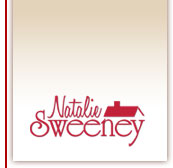Things To Know About Homeowner's Insurance
Know about exclusions to coverage.
For example, most insurance policies do not cover flood or earthquake damage as a standard item. These types of coverage must be bought separately.
Know about dollar limitations on claims.
Even if you are covered for a risk, there may be a limit on how much the insurer will pay. For example, many policies limit the amount paid for stolen jewelry unless items are insured separately.
Know the replacement cost.
If your home is destroyed you’ll receive money to replace it only to the maximum of your coverage, so be sure your insurance is sufficient. This means that if your home is insured for $150,000 and it costs $180,000 to replace it, you’ll only receive $150,000.
Know the actual cash value.
If you chose not to replace your home if it's destroyed, you’ll receive replacement cost, less depreciation. This is called actual cash value.
Know the liability.
Generally your homeowner’s insurance covers you for accidents that happen to other people on your property. Their costs can include medical care, court costs, and awards by the court. However, there is usually an upper limit to the amount of coverage provided. Be sure that it’s sufficient if you have significant assets.
Tips for lowering homeowner's insurance costs
- Review the Comprehensive Loss Underwriting Exchange (CLUE) report on the property you’re interested in buying. CLUE reports detail the property’s claims history for the last five years, which insurers may use to deny coverage. Make the sale contingent on a home inspection to ensure that problems identified in the CLUE report have been repaired.
- Seek insurance coverage as soon as your offer is approved. You must obtain insurance to buy. And you don’t want to be told at closing that the insurer has denied your coverage.
- Maintain good credit. Insurers often use credit-based insurance scores to determine premiums.
- Buy your homeowners and auto policies from the same company and you’ll usually qualify for savings. But make sure the discount really yields the lowest price.
- Raise your deductible. If you can afford to pay more toward a loss that occurs, your premiums will be lower. Avoid making claims under $1,000.
- Ask about other discounts. For example, retirees who tend to be home more than full-time workers may qualify for a discount on theft insurance. You also may be able to obtain discounts for having smoke detectors, a burglar alarm, or dead-bolt locks.
- Seek group discounts. If you belong to any groups, such as associations or alumni organizations, they may have deals on insurance coverage.
- Annually review your policy limits and the value of your home and possessions. Some items depreciate and require less coverage over time.
- Investigate a government-backed insurance plan. In some high-risk areas, the federal or state government may back plans to lower rates. Ask your agent.
- Be sure you insure your house for the correct amount. Remember, you’re covering replacement cost, not market value.
Reprinted from REALTOR® magazine (REALTOR.org/realtormag) with permission of the
NATIONAL ASSOCIATION OF REALTORS®. Copyright 2008. All rights reserved.


